Climbers and sprinters set to battle on the streets of Quebec and Montreal - Preview
WorldTour one-days offer chance at glory, points and World Championships preparation
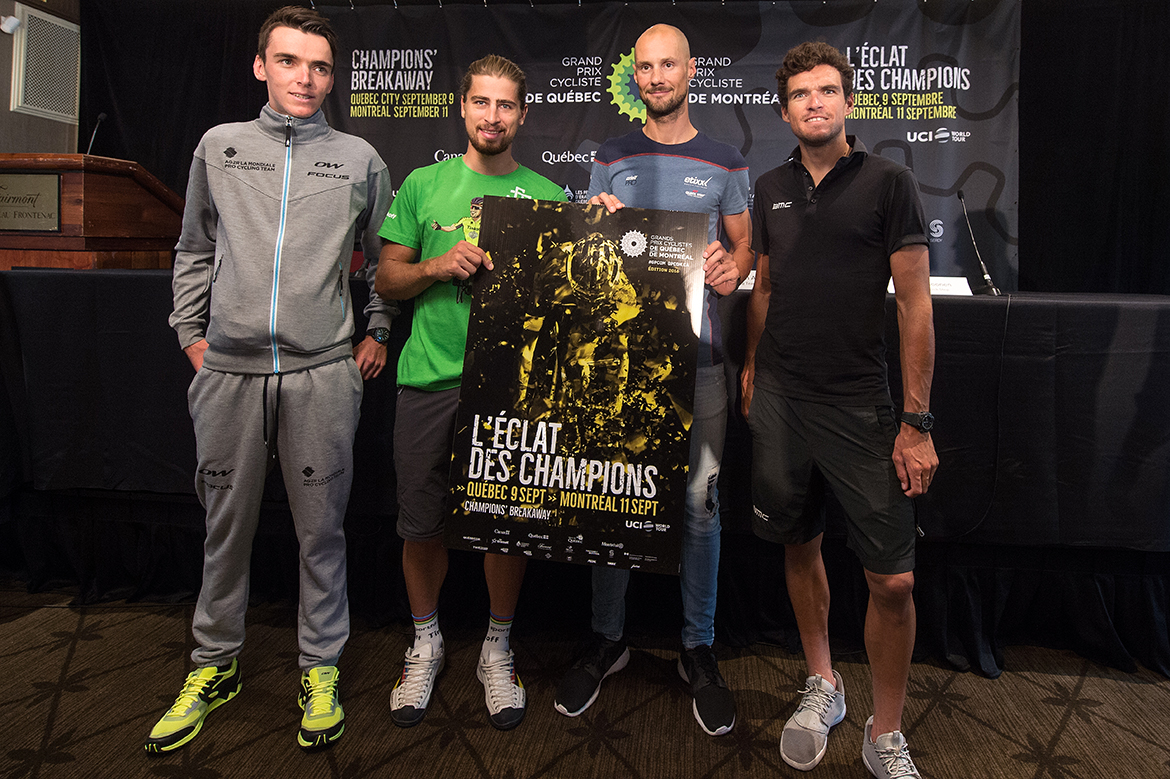
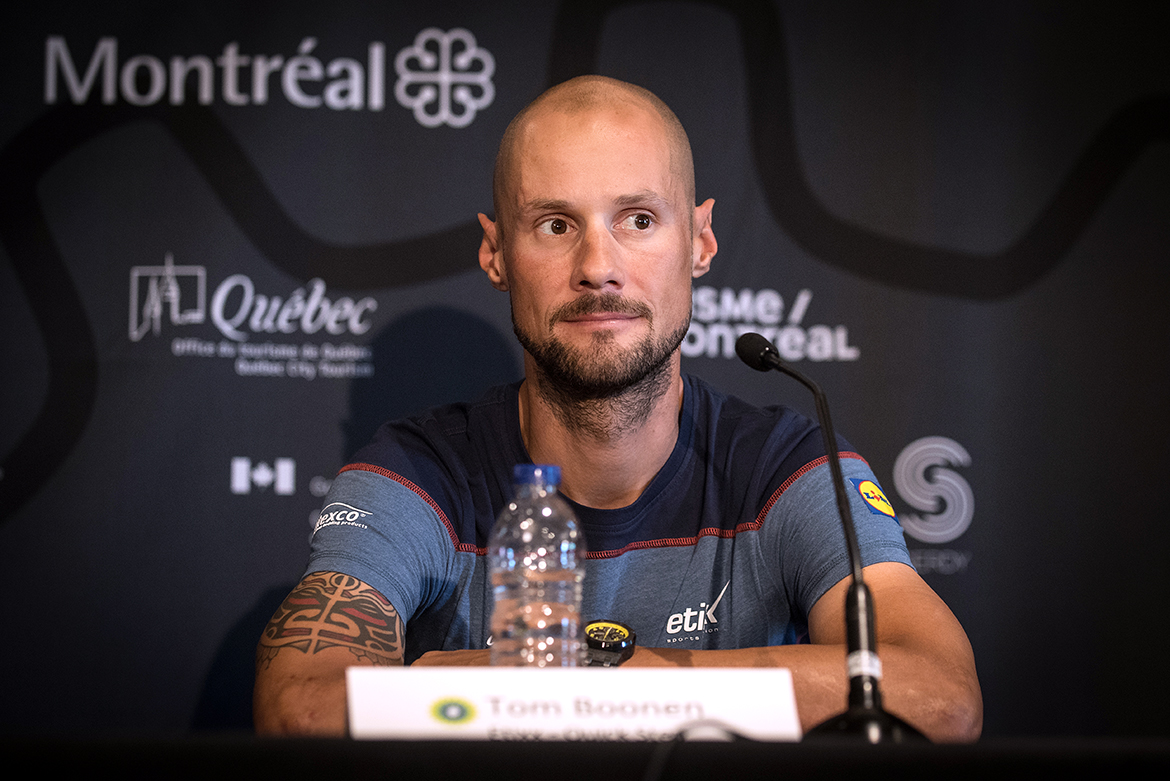
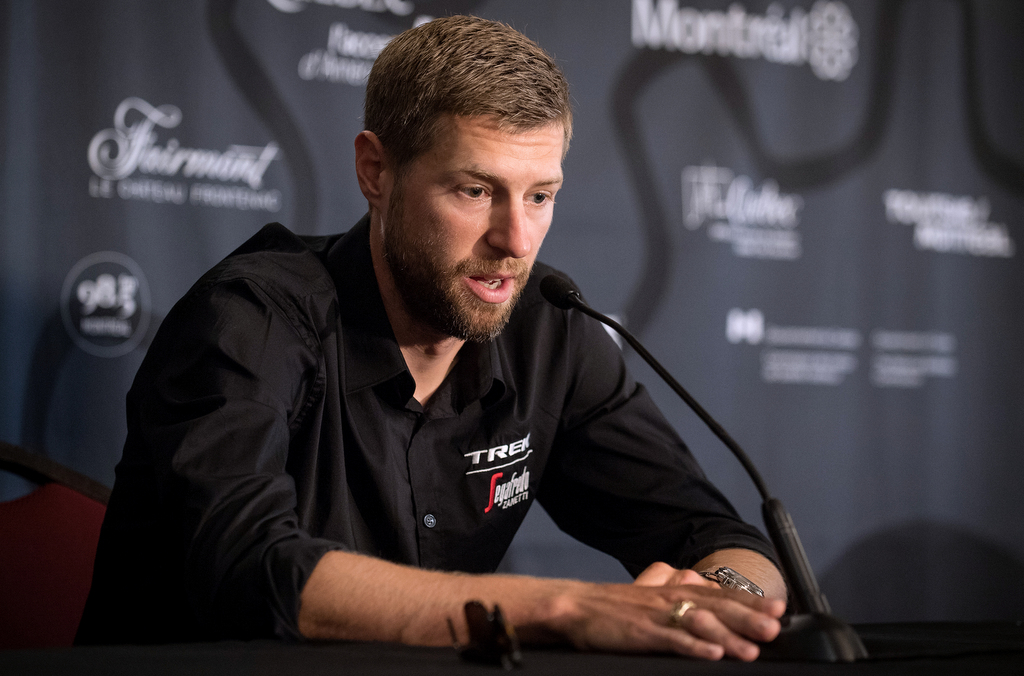
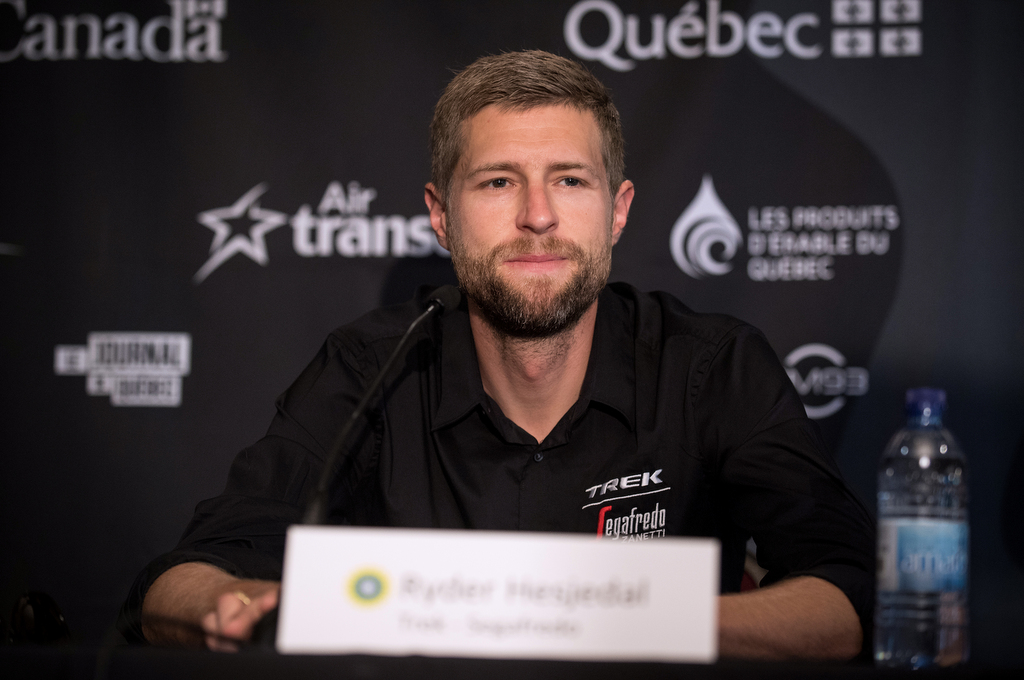
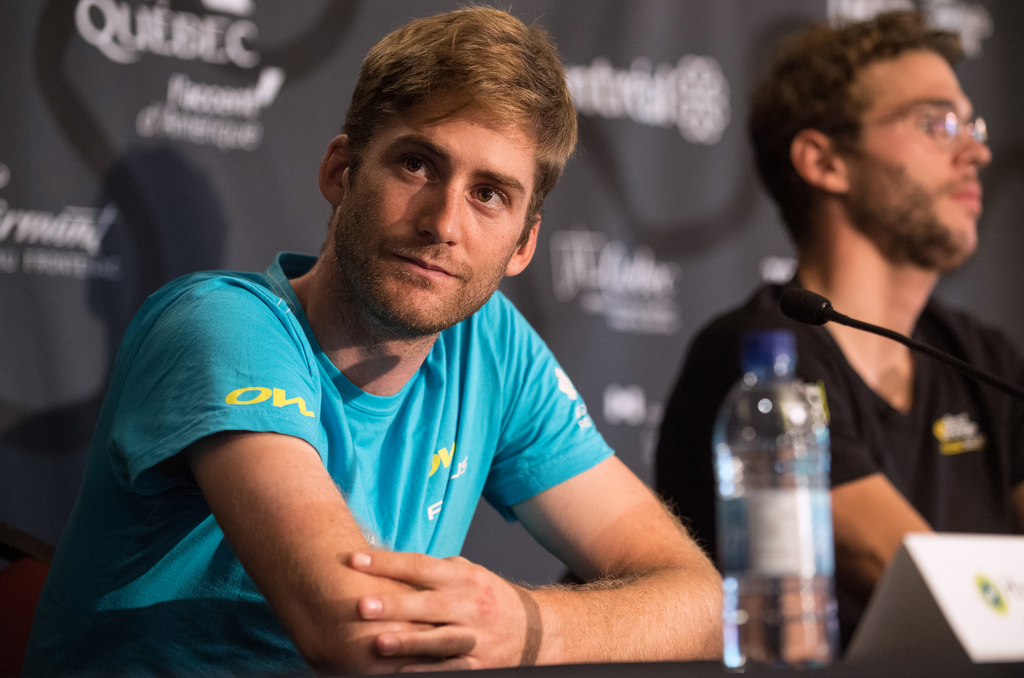
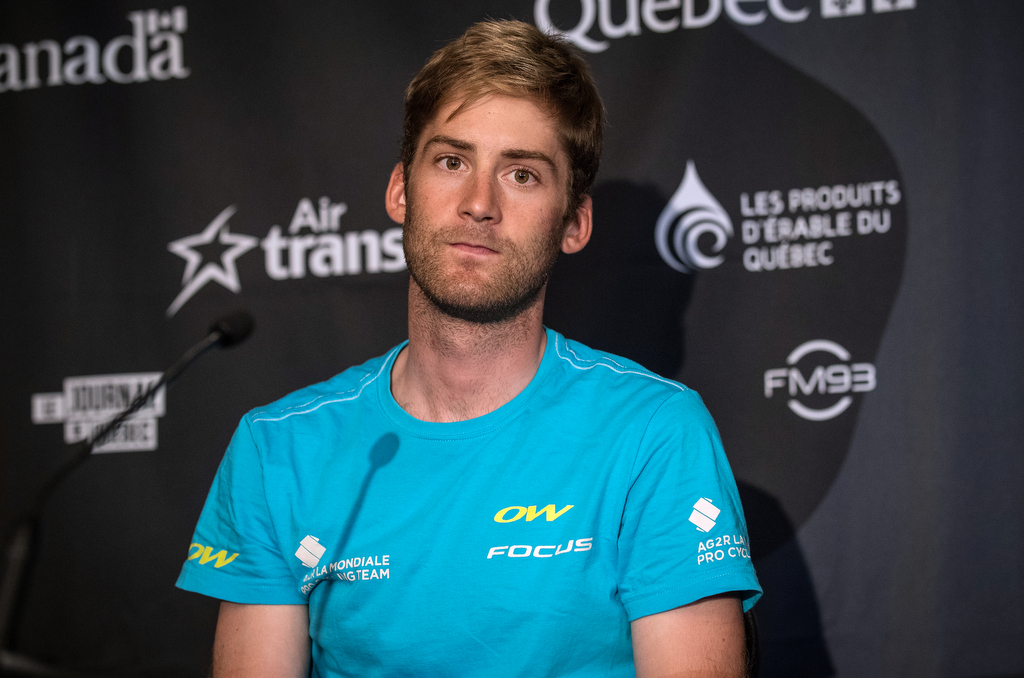
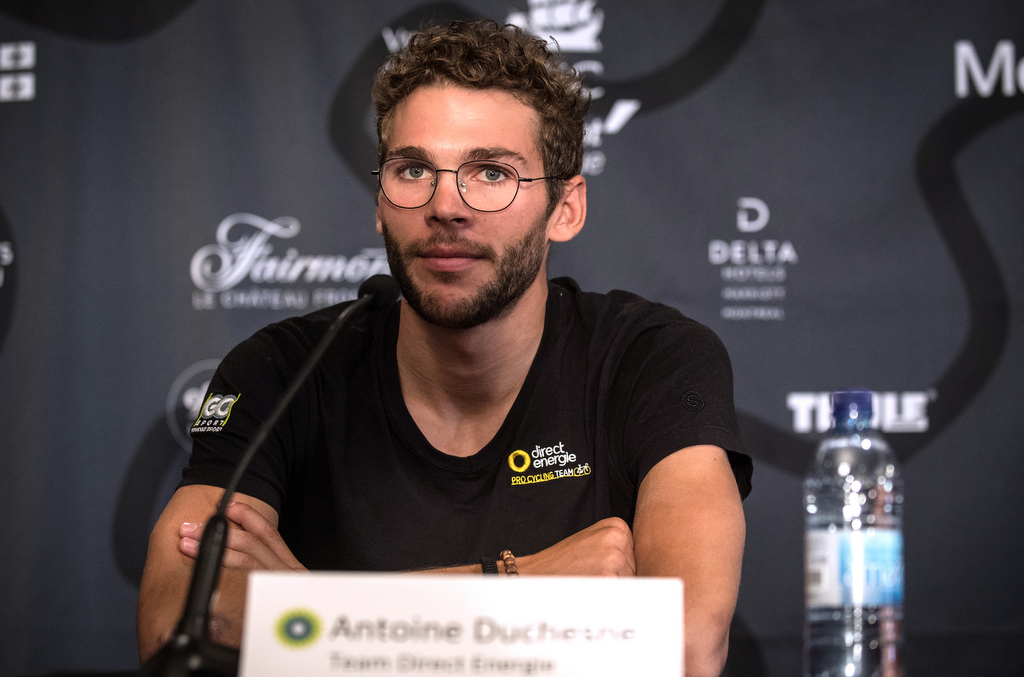
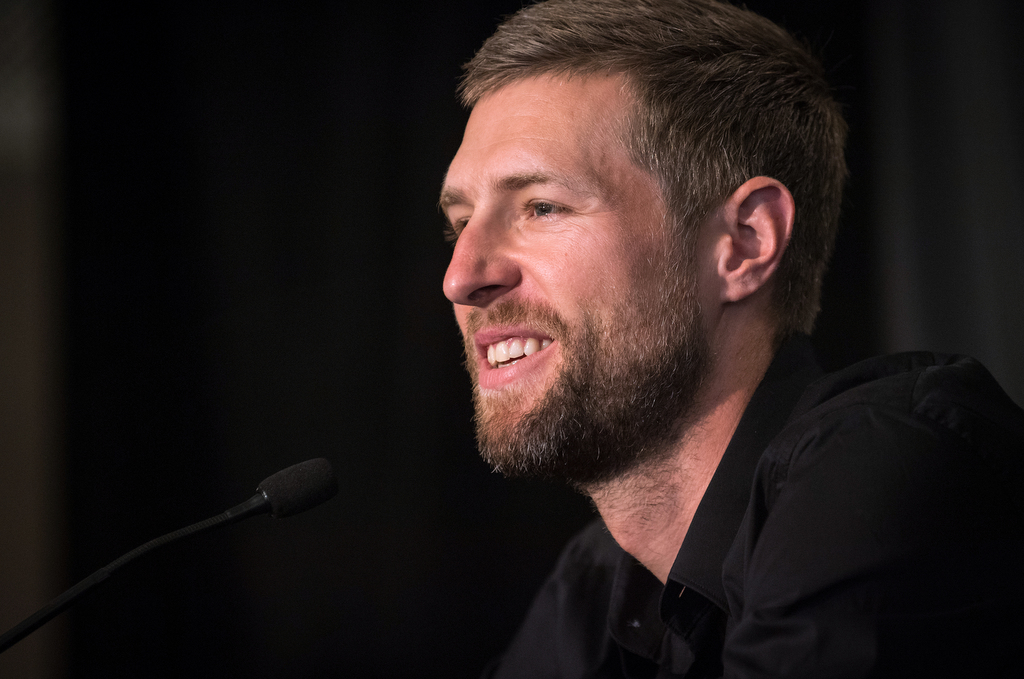
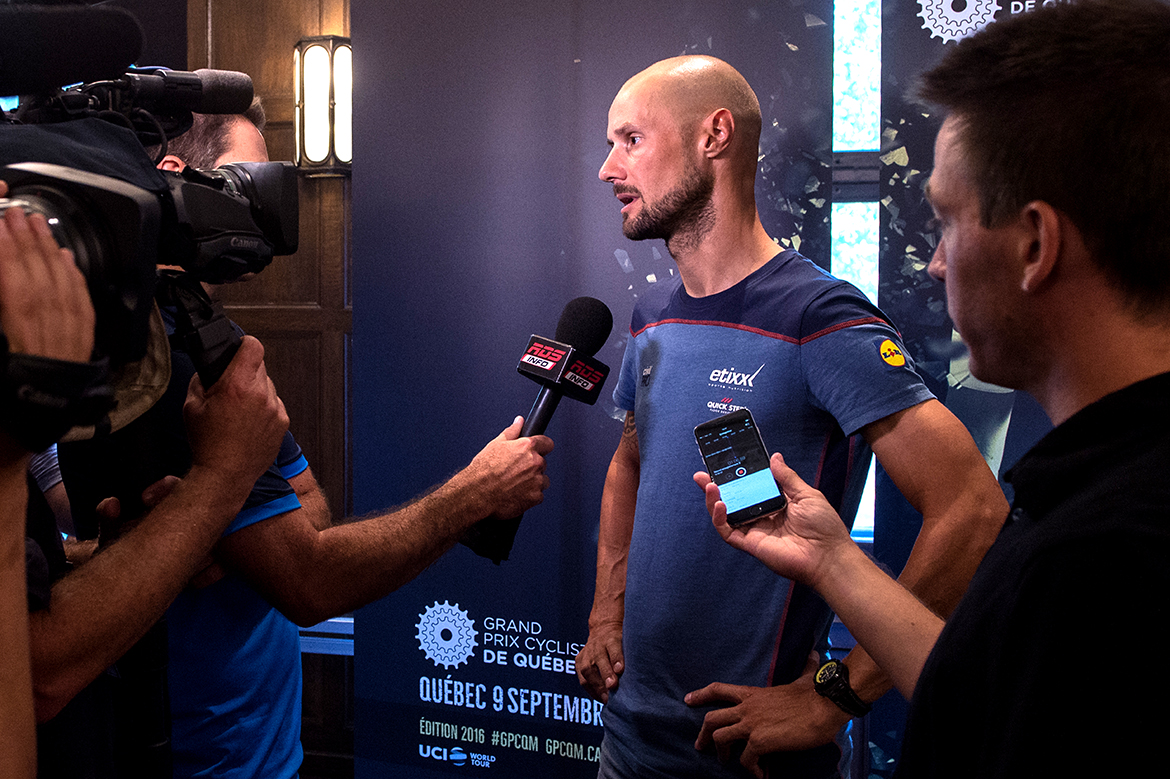
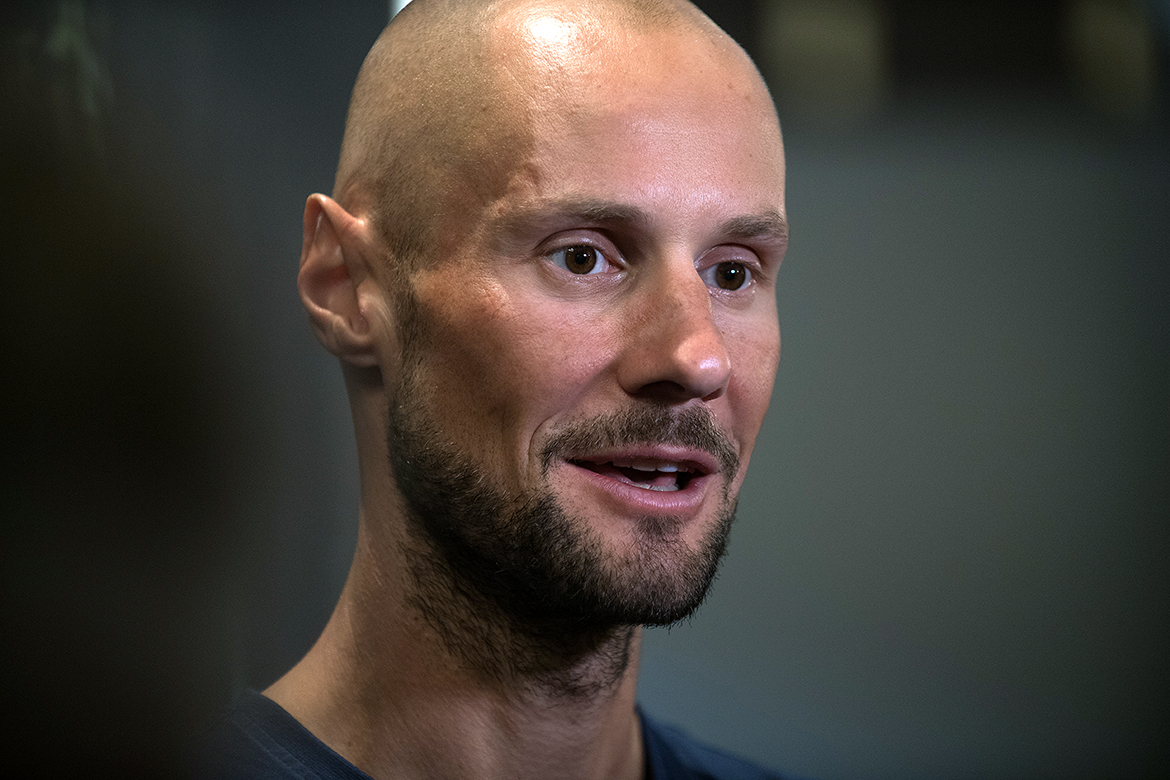
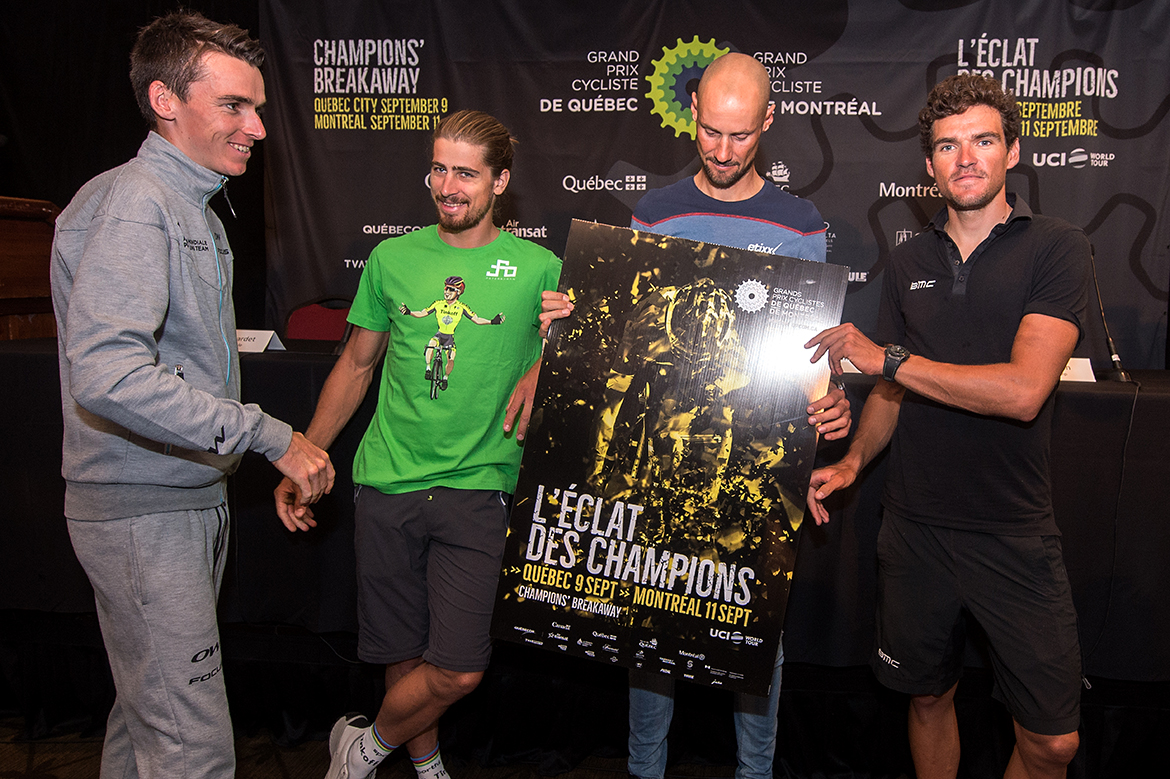
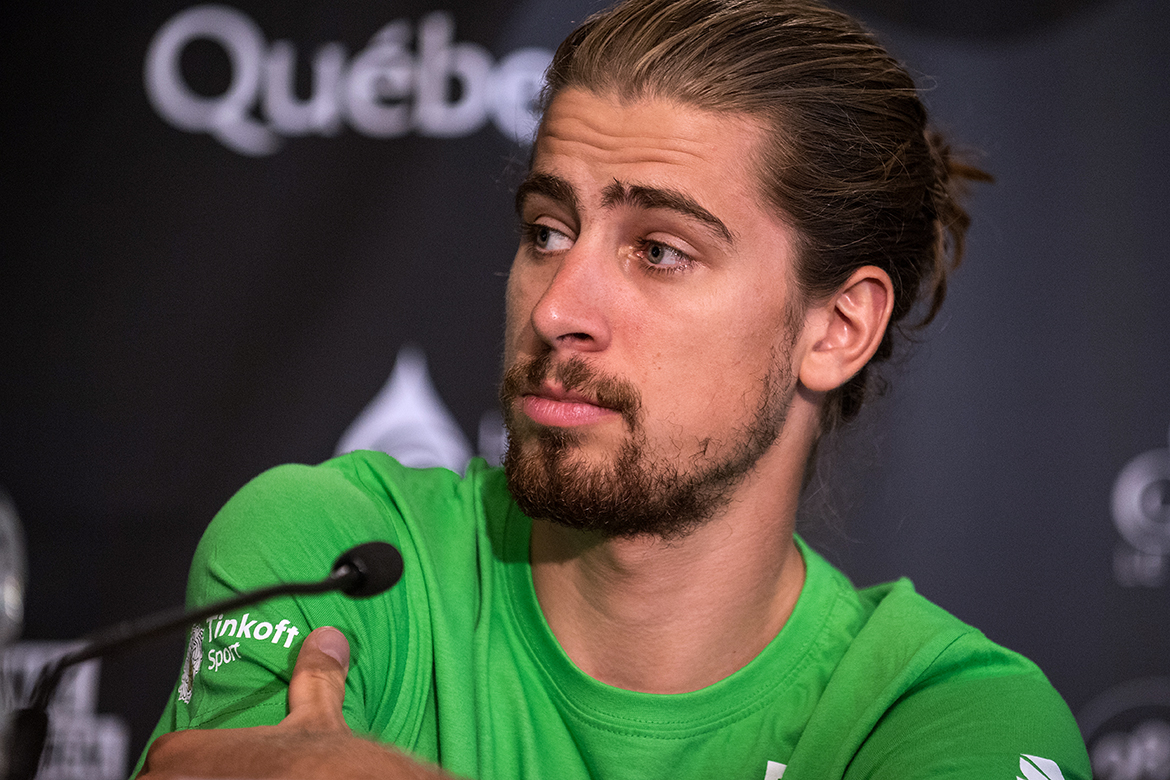
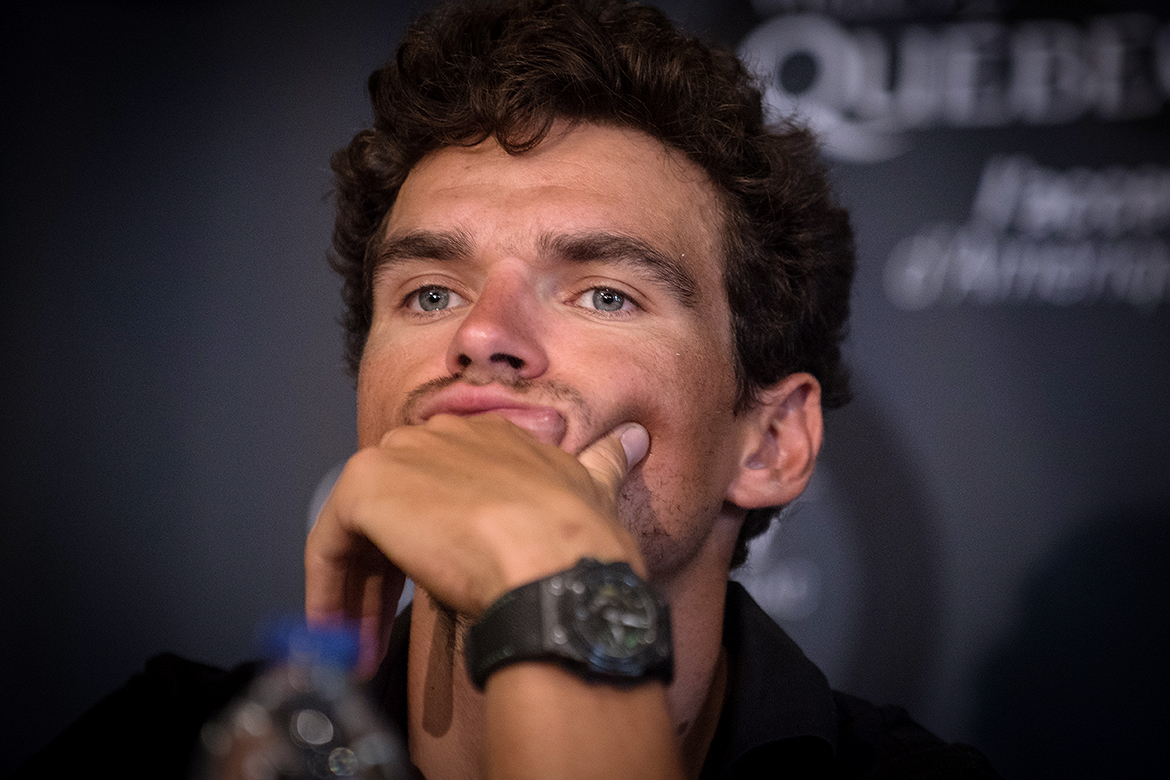
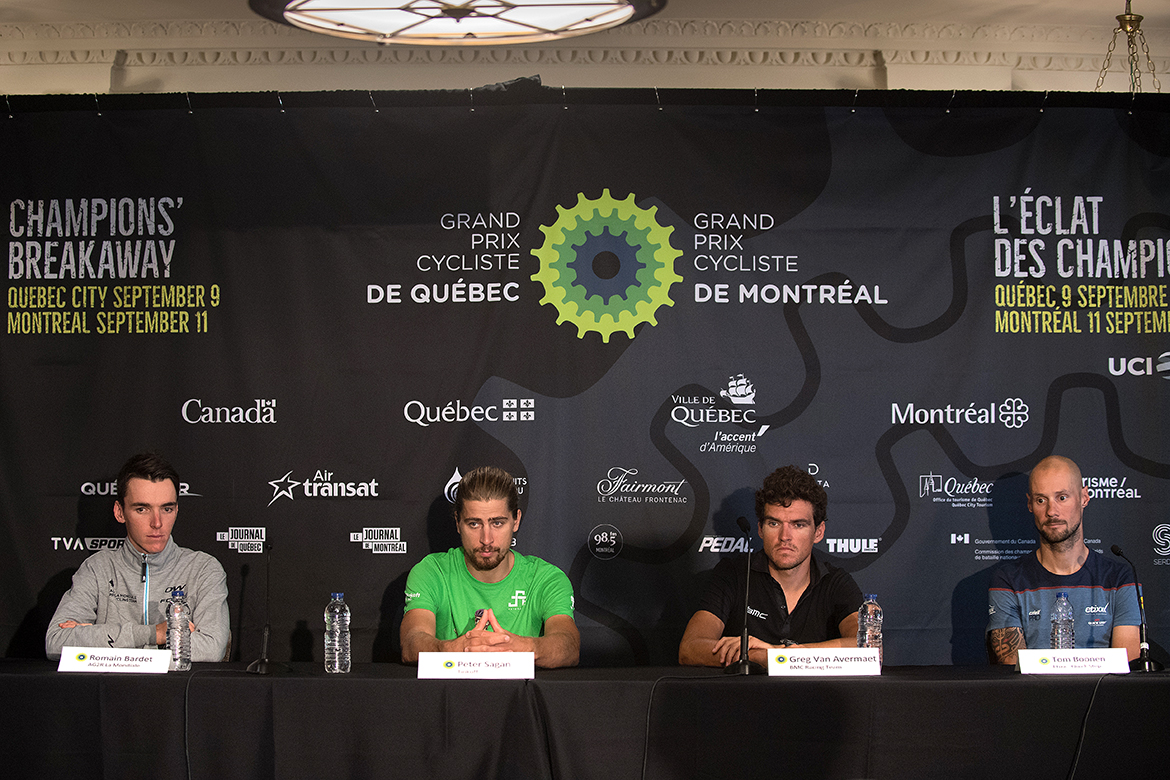
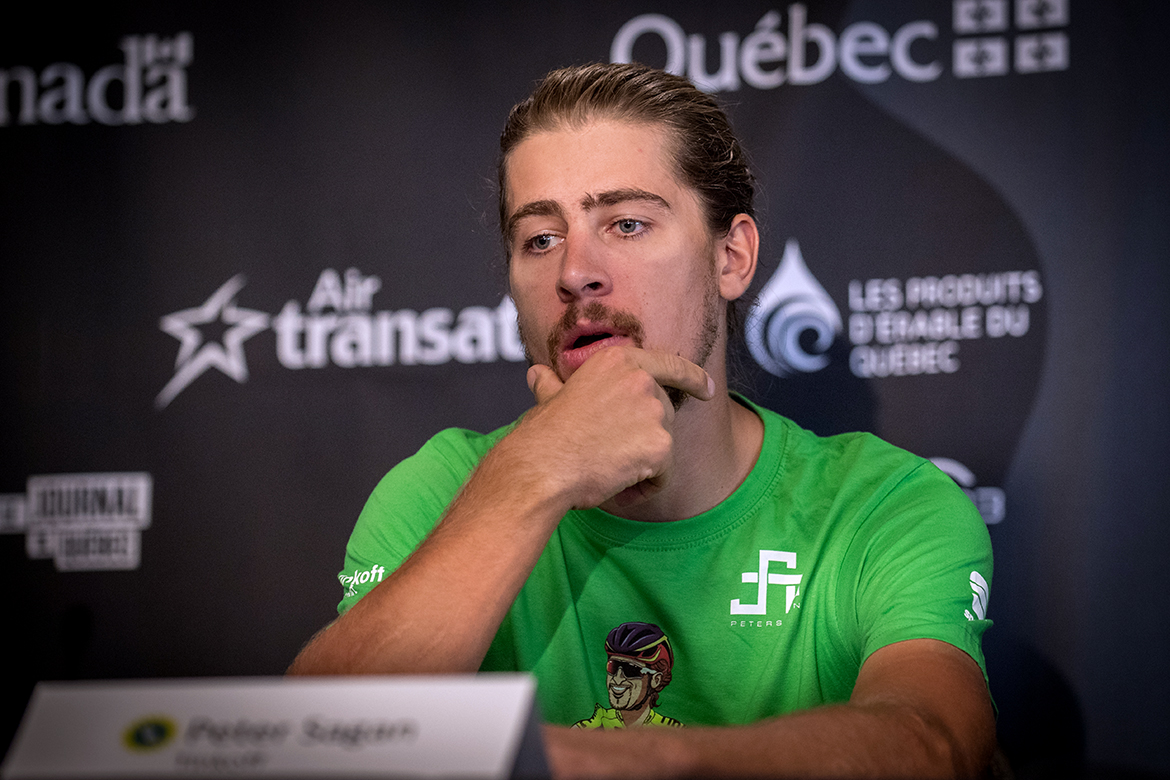
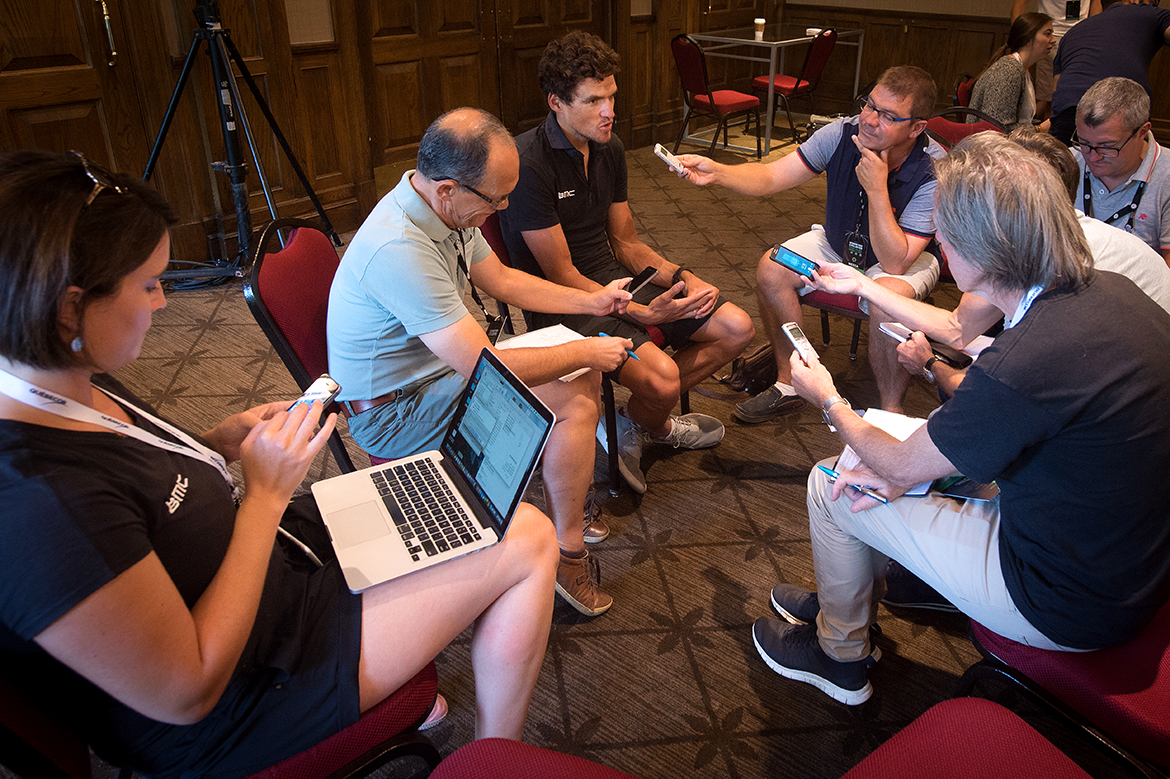
The WorldTour heads to Canada for two rounds of one-day events held in Quebec City and Montreal, respectively, on September 9 and 11 in the province of Quebec. They are two unique, punchy races on the late-season calendar that typically present unpredictable outcomes, swing toward either the sprinters or the climbers.
Riders arrived in Quebec City on Wednesday, many of them having recently completed the Tour of Alberta. Event organisers hosted an annual pre-race press conference for the top riders and teams at the arrivals entrance of the local airport.
The press met with current world champion Peter Sagan (Tinkoff), who will head a strong line-up at this year’s races. He was joined joined by Olympic gold medallist Greg Van Avermaet (BMC) and Tour de France runner-up Romian Bardet (AG2R La Mondiale).
Riders to watch over the two days of racing defending champions Rigoberto Uran (Cannondale), who won in Quebec City, and Tim Wellens (Lotto Soudal), who won in Montreal.
But the start lines are both packed with potential winners like Michael Matthews and Adam Yates (Orica-BikeExchange), Tom Boonen and Julian Alaphilippe (Etixx-QuickStep), Geraint Thomas (Team Sky), Mike Woods (Cannondale), Bauke Mollema (Trek-Segafredo), second overall in Alberta, and Bryan Coquard (Direct Energie) in the mix.
As one of the last WorldTour events of the season, with Eneco Tour held from Sept 19-25 and Il Lombardia on October 1, Sagan confirmed that he will be chasing points to keep his lead in the series standings. He currently leads with 445 points, while Tour de France winner Chris Froome (Team Sky) sits in second with 407 and Nairo Quintana (Movistar) is in third with 396. Froome and Quintana, however, are currently competing at the Vuelta a Espana. Sagan also leads the UCI world ranking ahead of Froome and Alejandro Valverde (Movistar).
For some of the sprinters and one-day specialists in the mix, like Sagan, Matthews and Boonen, the event marks one of the last opportunities to test their legs against one another ahead of the UCI Road World Championships in Doha in October.
The latest race content, interviews, features, reviews and expert buying guides, direct to your inbox!
The race is also part of farewell tours for Canadians Ryder Hesjedal (Trek-Segafredo) and Christian Meier (Orica-BikeExchange) who are set to retire at the end of this season.
Uran took a memorable victory Quebec City last year with a surprise late-race attack along the Grande Allee’s uphill drag to the finish line, and with 500m to go he held off a chase from the sprinters behind leaving Matthews and Alexander Kristoff (Katusha) to a photo-finish sprint for second.
In Montreal, Wellens won from a two-up sprint against his late-race breakaway companion Adam Yates (Orica), while Rui Costa (Lampre-Merida) won the chase-group sprint for third place.
The Routes
The Quebec City and Montreal courses are unchanged from previous six editions. Quebec City offers a challenging 12.6km circuit and racers will complete 16 laps for a total of 201.6km.
The riders will line up for the start of the race along the Grande Allée and descend through Les Plaines d'Abraham park to the Rue Champlain and race along the picturesque St. Lawrence river before making a turn back up through the walls of old Quebec City.
The rest of the course is littered with puncheur-style climbs, particularly over the steep Rue de la Montagne (the KOM), a short but steep climb at roughly 10 per cent that tends to cause the field to dwindle on each lap. They will next race up the Cote de la Potasse and back around passed the famed Chateau de Frontenac and onto the Grande Allée for roughly 500 metres on a steady uphill to the finish line.
In Montreal, riders will take on a 12.1km course for 17 laps, totaling 205.7km. They will begin along Avenue du Parc, at the base of the circuit’s decisive Mont Royal, a three-kilometre climb located in the downtown core. They will descend the Chemin Remembrance and travel over the Ch. de la Polytechnique before descending the Chemin de la Cote Ste-Catherine toward the finish line on Avenue du Parc.
The course in Montreal is a historical one in Canadian bike racing, with versions of it used in the 1974 World Championships won by Eddy Merckx, the 1976 Olympic road race won by Sweden's Bernt Johansson, and it was the site of many men's and women's World Cup events.
Both courses lend well to long breakaways, but they have proven to be not challenging enough to get rid of the faster, punchier riders in the field.
The races could go one of two ways; ending in a small, lined-out bunch sprint mixed with punchy sprinters and climbers similar to when Simon Gerrans won in Montreal in 2014. Or they could end in a more typical late-race attack reminiscent of when Robert Gesink and Sagan won in Montreal in 2010 and 2013, respectively, or in Quebec City when Gerrans, Gesink and Uran won in 2012, 2013 and 2015, respectively.
Biometrics data
Velon has partnered with the organisers of the Grands Prix Cyclistes de Québec and Montréal to make riders' biometrics data available in real time on a range of platforms. Groupe Serdy, owners of the event, has developed a tool which allows cycling fans access to riders' speed, cadence, power, heart rate and position.
Data fed from devices fitted to the riders' bikes in the Québec race on Friday and Montréal on Sunday will be available to fans in Canada, who can watch live coverage of the races with biometrics transmission on the TVA Sports network in French and on the website www.gpcqm.ca in English.

Kirsten Frattini is the Deputy Editor of Cyclingnews, overseeing the global racing content plan.
Kirsten has a background in Kinesiology and Health Science. She has been involved in cycling from the community and grassroots level to professional cycling's biggest races, reporting on the WorldTour, Spring Classics, Tours de France, World Championships and Olympic Games.
She began her sports journalism career with Cyclingnews as a North American Correspondent in 2006. In 2018, Kirsten became Women's Editor – overseeing the content strategy, race coverage and growth of women's professional cycling – before becoming Deputy Editor in 2023.